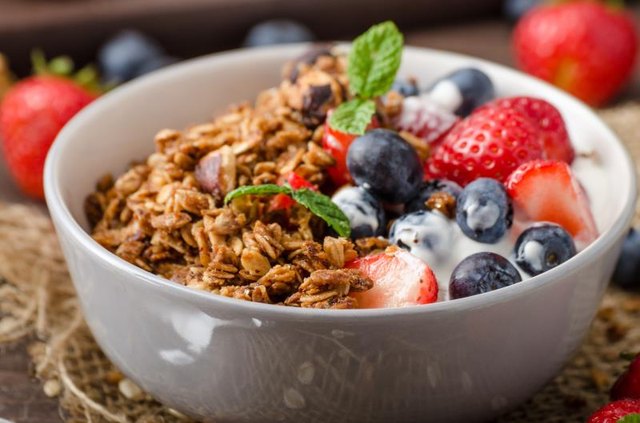
Overview
In addition to enhancing your nutrient intake and immune system, healthy foods are valuable sources of energy. While people's specific energy needs vary, athletes' needs tend to run high, according to the American Dietetic Association. Additional lifestyle habits important for positive energy levels include sleeping sufficiently, eating appropriate amounts of calories and limiting or avoiding alcohol. For best results, seek specified guidance from a qualified health care professional before making significant dietary changes.
Whole Grains
Whole grains provide significant amounts of fiber and nutrients, such as B vitamins, selenium and zinc. As low-glycemic foods, whole grains have a mild impact on your blood sugar levels, which is important for maintaining positive energy levels between meals. Increasing your intake of carbohydrate-rich foods, such as breads, pasta and cereals, before athletic events may provide more energy and help you perform at a heightened level. Because enriched breads, pasta, cereals and snack foods provide few dietary benefits, choose whole grains most often. Examples of nutritious whole-grain foods include 100 percent whole grain breads and cold cereals, whole-wheat pasta, barley soup, air-popped popcorn, long-grain brown rice, wild rice and quinoa.
Healthy Fats
Healthy fat sources, such as nuts, seeds, avocados and plant-based oils, promote positive heart-health, brain function and nutrient absorption. Fats also play an important role in energy for lengthy, low- to moderate-intensity exercises and athletic training, according to the American Dietetic Association. Limit saturated fat sources, such as processed meats and high-fat cheeses, which may increase your risk for high cholesterol and heart disease. Instead, snack on almonds, walnuts, natural trail mix, sesame seeds or sunflower seeds. Avocados provide a healthy alternative to mayonnaise and cheeses on sandwiches and burgers. Consume fatty fish, such as salmon, albacore tuna, halibut or sardines, to reap benefits of omega-3 fatty acids -- healthy fats that may help alleviate joint or muscular inflammation. Preparing lean meats and other dishes with olive or canola oil and topping salads with olive oil and vinegar and nuts or seeds in place of high-fat dressing or bacon also increase your healthy fat intake.
Fruits and Vegetables
Fruits and vegetables are prime sources of antioxidants, which help your body defend itself from health problems that may interfere with your energy levels and athletic performance. Fruits and vegetables provide quick-acting energy because they digest faster than whole grains, yet provide more nutrients than other "fast' carbohydrate sources, such as candy and soft drinks. For these reasons, the University of Missouri Extension program recommends that athletes consume fruits and vegetables throughout each day in place of processed foods for optimum energy. Fresh fruit and beverages, such as juices and smoothies, enhance your fluid intake and can help prevent energy decline associated with dehydration. For broadest nutritional benefits, incorporate a variety of colors and types of fruits and vegetables into your meals and snacks routinely.
www.livestrong.com





No comments:
Post a Comment